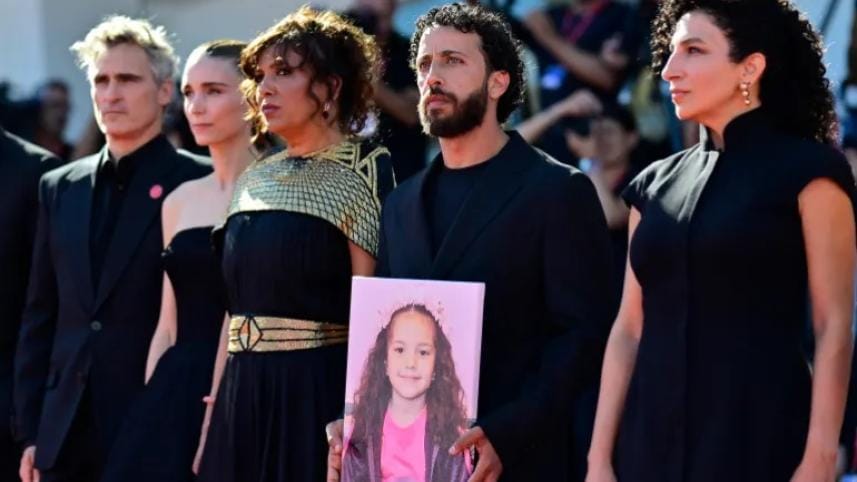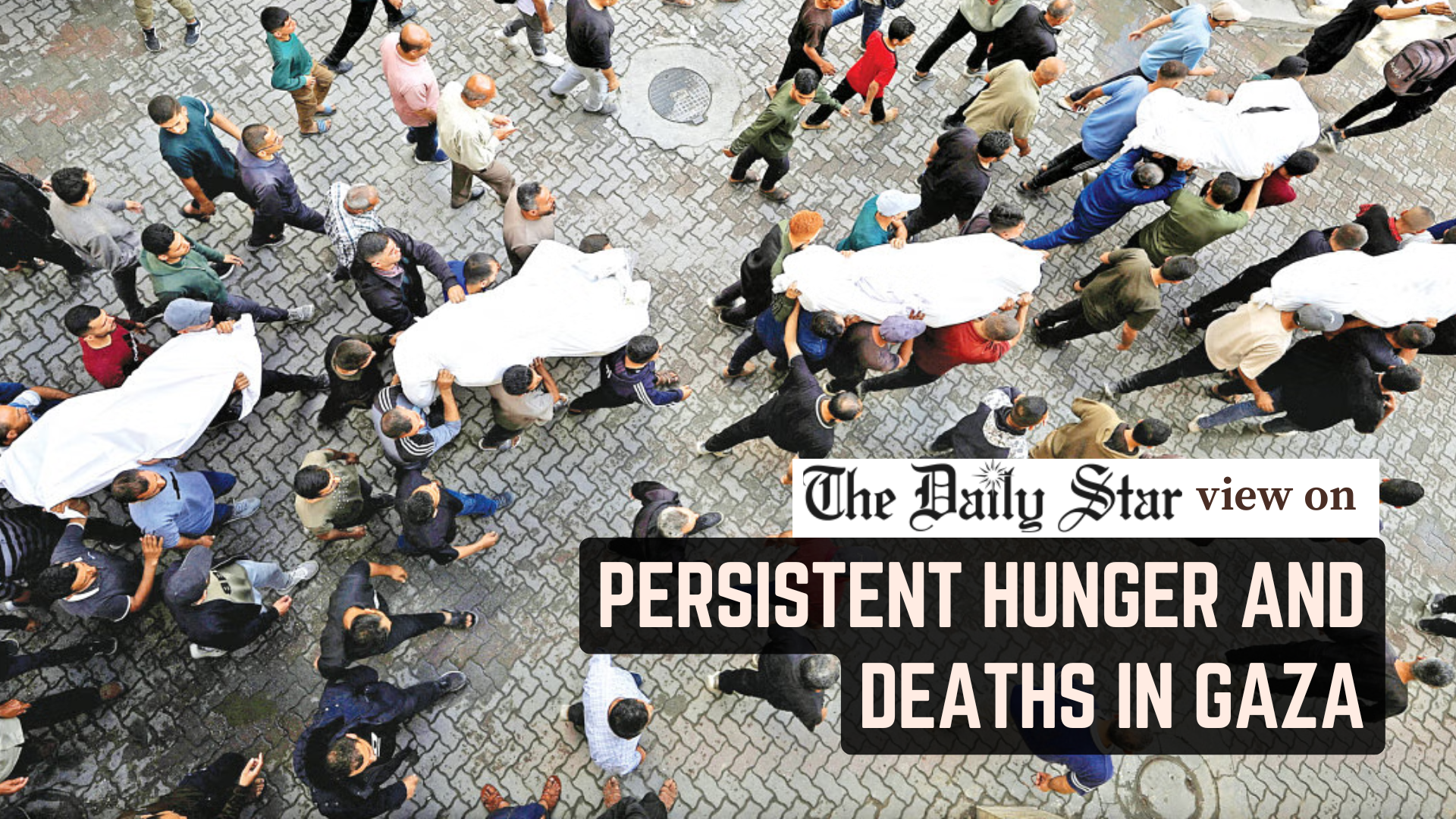23-min standing ovation for Hind Rajab, 28 small graves a day in Gaza

The applause kept rising. Everyone stood on their feet at the 2025 Venice Film Festival for a film about a five-year-old girl who died, begging adults to come get her. Hind Rajab's voice reached a red carpet audience, and they answered with clapping palms, wet eyes, and a record ovation. Will the 23-minute standing ovation bring the little girl from Gaza back, though? Does it mean anything beyond the echo?
Kaouther Ben Hania's The Voice of Hind Rajab tells a story we already know, and keep refusing to act upon. On January 29, 2024, Hind Rajab was fleeing Gaza city with her aunt, uncle, and three cousins. Audio from her calls with emergency operators suggests she was the only one left alive, whispering from between the bodies as she hid from Israeli forces, until the line went dead under fresh gunfire. When Palestinian Red Crescent paramedics finally managed to reach the area, they found the car she was in mangled. A paramedic told reporters Hind was among the six bodies inside, all bearing the marks of gunfire and shelling. A few metres away lay the husk of the ambulance dispatched to save her.
Multiple investigations have documented the sequence; UN experts later said the killing may amount to a war crime. "May."
What has the world done since? UNICEF says more than 50,000 children have been reportedly killed or injured in Gaza since October 2023. Read that again. An entire city of childhood erased or scarred.
The UN says Gaza is losing, on average, 28 children a day. An entire classroom gone every day. UNICEF says it plainly, "Death by bombardments. Death by malnutrition and starvation. Death by lack of aid and vital services." The zeros keep adding up while trucks of food and medicine are systematically obstructed by Israel.
Famine is no longer a warning, but a lived sentence. Half a million people are already trapped in famine conditions. Every deprivation has a tiny, specific victim with a nickname, a favourite cartoon. July was the cruellest month for child malnutrition so far this year.
Meanwhile, the machinery of international law creaked into motion and then… what? The International Court of Justice ordered provisional measures in January 2024, recognising a plausible risk of genocide and instructing Israel to prevent acts under the Genocide Convention. In the time since, Israeli bombs have not learnt to read court orders.
So, are we, as nations and a supposedly collective humanity, doing anything substantial and timely to stop this mass slaughter of children in Gaza? Substantial means it changes outcomes. Timely means before another classroom's worth is buried. By that measure, the answer is brutal: not enough, not fast, not really. We have mustered ovations, outrage, and rhetoric. Some governments have offered carefully worded condemnations. But then arms supply to Israel continues. UN agencies plead for unfettered access while aid convoys idle at borders or are turned into moving targets. Ceasefire talks appear, evaporate, reappear, evaporate.
What would "substantial and timely" look like? An immediate, durable ceasefire paired with a monitored flow of aid moving every hour. Not endless press releases but convoys that make it through. It means states suspending transfers of weapons and components that are used to kill children. It means enforcing international court orders and conditioning relationships on compliance with international law. It means protecting aid workers, the people Hind begged to reach her, rather than posthumously saluting their courage.
And it means owning our complicity. In Bangladesh, we know what it is to count our dead and demand the world see us. We also know the perils of performative empathy. If love and compassion are not logistical, it's PR.
Cinema can hold memory. It can resist amnesia. The director of The Voice of Hind Rajab, Ben Hania, has said as much. But it cannot distribute food or negotiate corridors. Festivals can amplify a voice; governments can turn it into law, budgets, and protected routes.
A 23-minute ovation is long enough to read out every Palestinian child's name who, on average, will not survive in a day. Long enough to examine our comfort with words like "may," "plausible," "complex." Long enough to decide whether we mean any of the things we say about love, humanity, and childhood. The question is not whether the world will remember Hind Rajab. The question is whether the next 23 minutes will matter to a child who is still breathing.
Karim Waheed is digital content strategy lead at The Daily Star.
Views expressed in this article are the author's own.
Follow The Daily Star Opinion on Facebook for the latest opinions, commentaries and analyses by experts and professionals. To contribute your article or letter to The Daily Star Opinion, see our guidelines for submission.




 For all latest news, follow The Daily Star's Google News channel.
For all latest news, follow The Daily Star's Google News channel. 



Comments